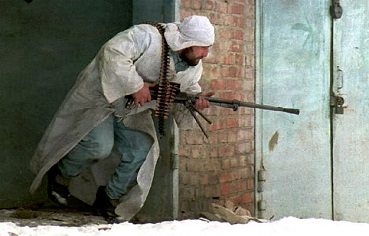New questions on Boston bombing suspects’ ties to US intelligence

The Neocons' war against Russia: CIA-supported Chechen jihadist
Information continues to come to light raising questions about the relationship between American intelligence agencies and the Tsarnaev brothers, who are suspected of carrying out the April 15 bombing at the Boston marathon.
The brothers’ parents continue to insist that their sons are innocent, with the mother claiming they were set up by the American state and “controlled” by the FBI.
US authorities have acknowledged that the Tsarnaev brothers were investigated by the FBI and CIA. However, they claim that at most the intelligence and security agencies are guilty of a “failure to communicate” what they knew about the two.
This is an echo of the “failure to connect the dots” explanation that was given for the failure of the CIA and FBI to prevent the 9/11 attacks, even though many of the perpetrators were known to these agencies and were being tracked. Despite the staggering security lapses that were acknowledged in the aftermath of 9/11, no high-level officials were fired. Robert Mueller, who headed the FBI in 2001, remains the head of the top federal police agency.
Details continue to emerge over the close surveillance by state intelligence agencies of the Tsarnaevs and their associates. In March 2011, the Russian federal security services (FSB) intercepted a call between Tamerlan Tsarnaev, the older of the two brothers, and his mother, in which they “vaguely discussed jihad.”



























